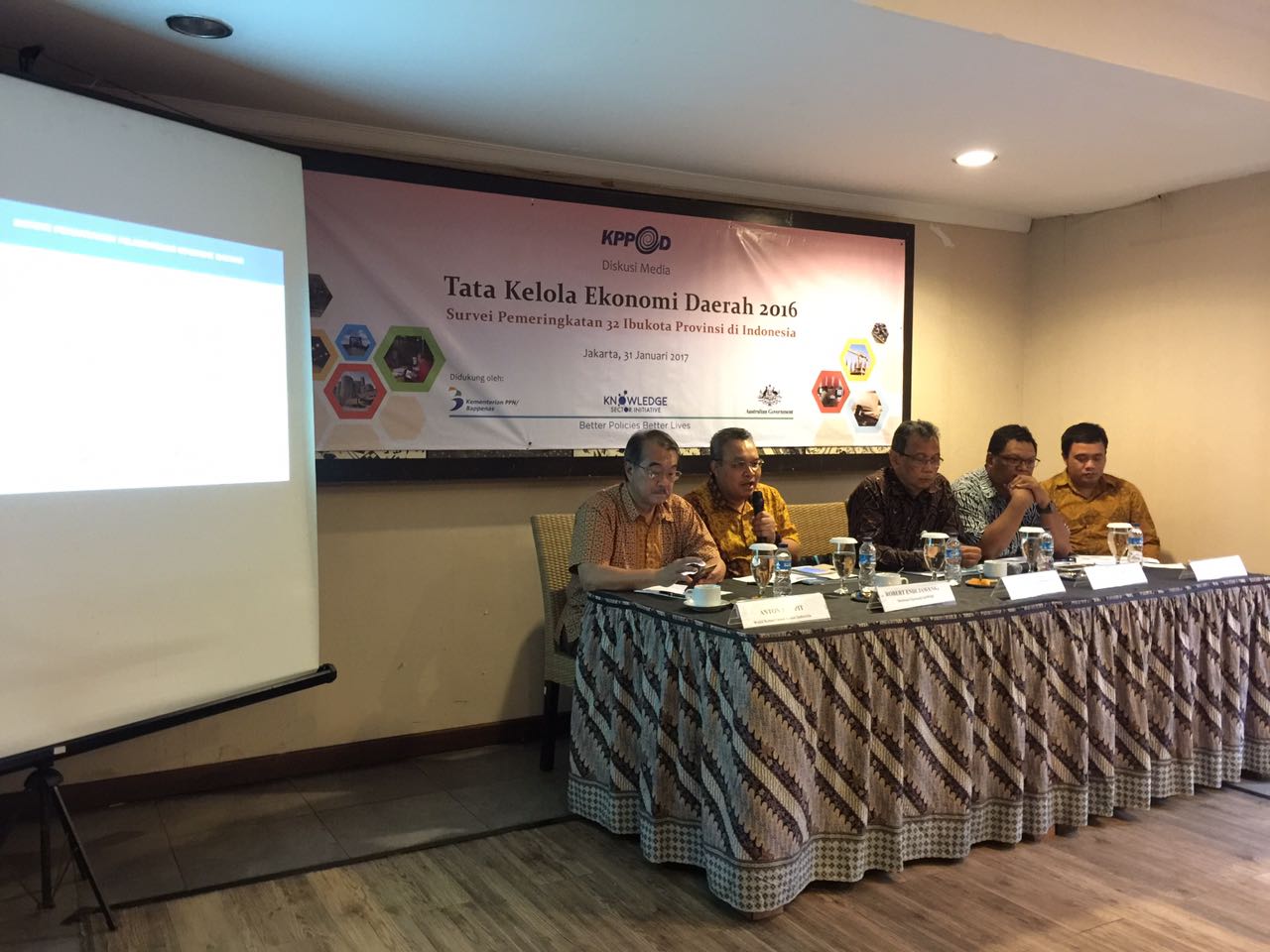By Iskhak Fatonie and Vira Ramelan
In response to the House of Representative’s (DPR) proposed revision of Law No. 5/2014 on Civil Service (UU ASN), the Independent Team for National Bureaucratic Reform (TI-RBN) with support from KSI, organised a half-day knowledge sharing session on 30 January 2017. The topic was ‘Merit-based System and Open Promotion for Senior Executive Services (JPT)’. Around 35 people attended including: stakeholders from the state and media, civil society activists including Professor Eko Prasodjo and Professor Siti Zuhro from TI-RBN, Professor Sofyan Effendi with high-level officials from KASN, Professor Yanuar Nugroho from KSP, representatives of KemenPANRB, representatives of civil society, including Endi Jaweng from KPPOD, ISI, FITRA and Rudiarto Sumarwono from UICSGAR, and chief editors from the Jakarta Post, Media Indonesia, Metro TV, Suara Pembaruan, Berita Satu and Tempo Online.
Professor Eko Prasojo, as the Head of the TI-RBN, opened the meeting by presenting findings of the study prepared by UICSGAR and CSIS on the importance of a merit-based system and open promotion for JPT and other national bureaucracy reform agendas. The study highlighted pros and cons during the implementation of the system and the open promotion of JPT. The CSIS study recommended that the implementation of a merit-based system needed to be improved, such as producing monitoring tools and clear guidelines for the selection committee. The recent DRP initiative, however, urges the conversion of contract-based government employees (tenaga honorer) into civil servants without competency testing, and the abolishment of the Indonesian Civil Service Commission (KASN). Both are in direct contradiction to the existing law.
This DPR initiative on the revision of the Law is considered counter-productive to the successful implementation of bureaucratic reform in Indonesia. The recent case where the Indonesian Corruption Eradication Commission (KPK) arrested the Bupati of Klaten for allegedly accepting bribes related to the transfer of JPT at the Klaten’s administration shows that kinship and patronage systems remain strong in Indonesia’s bureaucracy. Instead of applying a merit-based system, the elected leaders from the winning party tended to employ their supporters or family members to fill civil servant positions, with long tenure and without passing competency tests. This kind of patronage-based system has for decades been the key defining feature of governance in Indonesia, resulting in an increase of the national budget and the growth of incompetent civil servants, while also creating a fertile ground for corruption. The UU ASN was approved in 2014 to radically revise this by having open recruitment overseen by a national commission.
In response to this highly political issue, participants in the discussion agreed that there is a need to strengthen the supervision of the implementation of a meritocracy system in Indonesia, which is the main role of KASN. There is also recognition among mainstream media practitioners that a merit-based system in civil service recruitment is crucial for bureaucratic reform implementation in Indonesia to be successful. The media needs to play a critical role in supporting successful implementation of bureaucratic reform in Indonesia.
This knowledge sharing session was part of KSI’s commitment to facilitate improved interactions between policy makers and knowledge producers, including universities, research institutes and civil society for better policy making in Indonesia. This kind of facilitation is expected to lead to shared understanding and coalition building to achieving a healthy knowledge sector, in particular on merit-based recruitment, promotion and remuneration of researchers and bureaucrats who are responsible for the policy making process.






